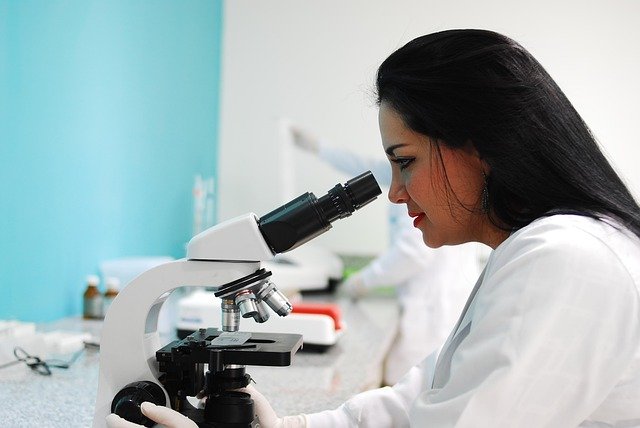Discover how to start your career as a laboratory assistant and the opportunities
Laboratory assistants play a vital role in scientific research, healthcare, and various industries by supporting experiments, maintaining equipment, and ensuring accurate data collection. This career path offers diverse opportunities for those interested in science and hands-on work. Whether you're just starting out or considering a career change, understanding the requirements, skills, and pathways available can help you make informed decisions about entering this rewarding field.

Understanding The Role Of Laboratory Assistants In Research
Laboratory assistants provide essential support in research facilities, hospitals, universities, and private laboratories. Their responsibilities typically include preparing samples, cleaning and sterilizing equipment, recording data, and assisting scientists with experiments. They work across various fields such as medical diagnostics, pharmaceutical development, environmental testing, and academic research. The role requires attention to detail, adherence to safety protocols, and the ability to follow precise instructions. Laboratory assistants often serve as the backbone of research operations, ensuring that experiments run smoothly and that equipment remains in proper working condition. Their contributions enable researchers and scientists to focus on analysis and discovery while maintaining a safe and organized laboratory environment.
Essential Qualifications For Laboratory Assistants
Most laboratory assistant positions require at least a high school diploma or equivalent, though many employers prefer candidates with additional education or training. An associate degree in laboratory science, biology, chemistry, or a related field can significantly enhance employment prospects. Some positions may require specific certifications depending on the industry and location. For example, clinical laboratory assistants working in healthcare settings may need certification from recognized professional organizations. Coursework in science subjects, mathematics, and computer applications provides a strong foundation. Many employers also value hands-on laboratory experience gained through internships, volunteer work, or academic laboratory courses. Understanding laboratory safety regulations, proper handling of chemicals and biological materials, and familiarity with standard laboratory equipment are fundamental qualifications that employers seek in candidates.
Skills Needed For Success In Laboratory Assistance
Successful laboratory assistants possess a combination of technical and interpersonal skills. Technical proficiency includes the ability to operate laboratory equipment such as microscopes, centrifuges, spectrophotometers, and autoclaves. Attention to detail is critical, as even small errors in measurements or procedures can compromise research results. Strong organizational skills help manage multiple tasks, maintain accurate records, and keep laboratory spaces orderly. Communication skills are essential for collaborating with team members, following instructions, and documenting findings clearly. Problem-solving abilities enable assistants to troubleshoot equipment issues and adapt to unexpected situations. Time management skills ensure that tasks are completed efficiently within deadlines. Additionally, a commitment to safety protocols and ethical standards is non-negotiable in laboratory environments. Developing computer literacy, particularly with data management software and laboratory information systems, has become increasingly important in modern laboratory settings.
Exploring Different Career Paths In Laboratory Settings
Laboratory assistants can pursue various career paths depending on their interests and specialization. Clinical laboratory assistants work in hospitals and diagnostic centers, supporting medical testing and patient care. Research laboratory assistants contribute to scientific studies in universities, government agencies, or private research institutions. Industrial laboratory assistants work in manufacturing settings, conducting quality control tests for pharmaceuticals, food products, or chemicals. Environmental laboratory assistants analyze samples related to air quality, water testing, or soil contamination. Forensic laboratory assistants support criminal investigations by processing evidence. With experience and additional education, laboratory assistants can advance to positions such as laboratory technician, laboratory technologist, quality assurance specialist, or laboratory supervisor. Some professionals eventually transition into research scientist roles or pursue graduate education in their field of interest. The versatility of laboratory skills allows for movement between different industries and specializations throughout one’s career.
Finding Job Opportunities And Networking In The Field
Finding employment as a laboratory assistant involves utilizing multiple strategies. Online platforms and career websites frequently list laboratory positions across various industries. Professional associations related to laboratory science often maintain directories and career resources for members. University career centers can connect students and recent graduates with internship and entry-level opportunities. Networking plays a crucial role in discovering unadvertised positions and gaining insights into different laboratory environments. Attending scientific conferences, joining professional organizations, and participating in workshops can help build connections with professionals in the field. Volunteering or seeking internships in laboratories provides valuable experience and demonstrates commitment to potential employers. Many laboratory assistants begin their careers through temporary or contract positions, which can lead to permanent employment. Maintaining a professional online presence, particularly on career-focused social media platforms, can attract recruiter attention. Tailoring application materials to highlight relevant skills, education, and laboratory experience increases the likelihood of securing interviews.
Preparing For Your Laboratory Assistant Career
Starting a career as a laboratory assistant requires thoughtful preparation and continuous learning. Consider enrolling in relevant courses or certificate programs that provide hands-on laboratory experience. Many community colleges and vocational schools offer affordable training programs specifically designed for aspiring laboratory professionals. Seek opportunities to shadow experienced laboratory workers or arrange informational interviews to gain realistic insights into daily responsibilities. Develop familiarity with laboratory safety regulations and standard operating procedures before entering the workforce. Building a strong foundation in science subjects through formal education or self-study demonstrates commitment and capability. Stay informed about technological advances and emerging techniques in laboratory science through professional journals, online resources, and continuing education opportunities. Cultivating a professional demeanor, reliability, and a genuine interest in scientific inquiry will serve you well throughout your career. Remember that entry-level positions provide valuable learning experiences that form the foundation for future advancement and specialization in this dynamic field.
Conclusion
A career as a laboratory assistant offers meaningful work in support of scientific advancement and discovery across numerous industries. By understanding the role, obtaining appropriate qualifications, developing essential skills, exploring different career paths, and actively seeking opportunities, you can successfully launch and sustain a rewarding career in laboratory settings. The field continues to evolve with technological advances, creating ongoing opportunities for those willing to adapt and grow professionally.




